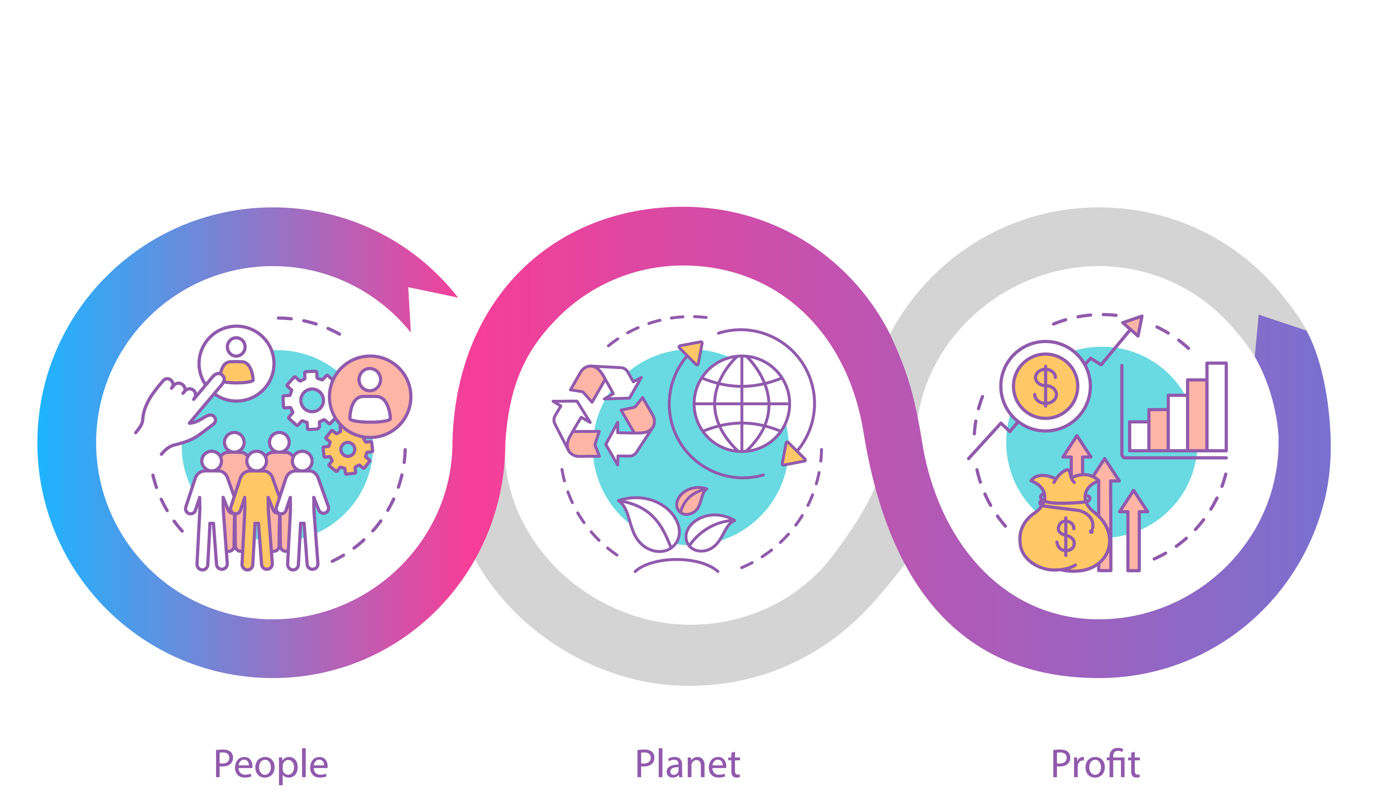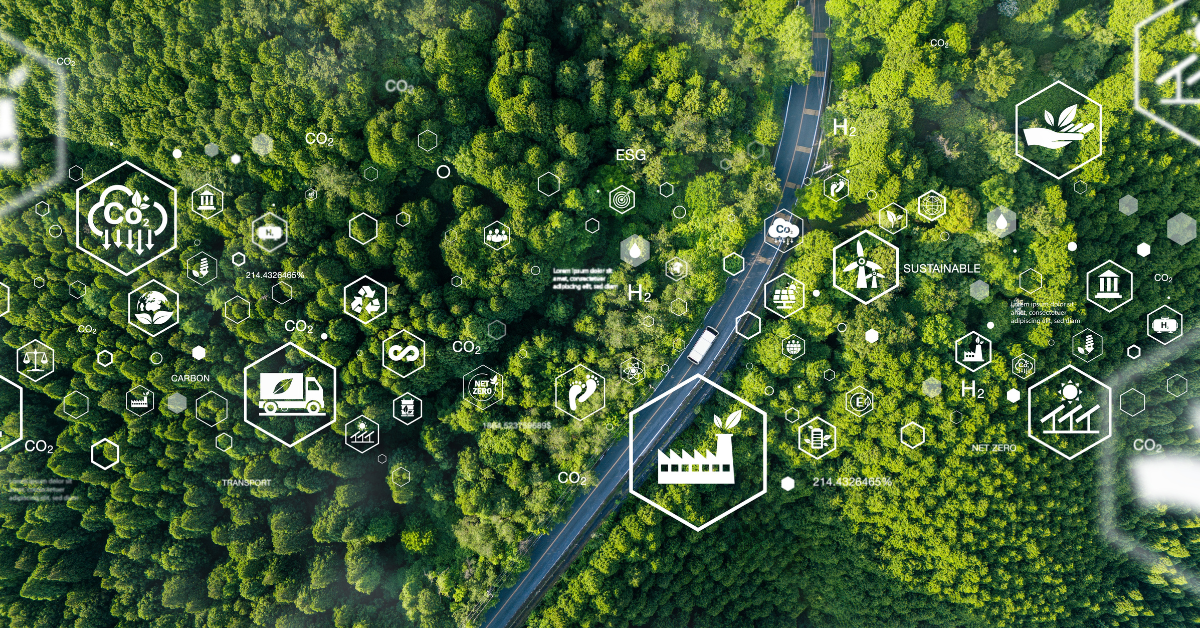
How do you communicate your commitment and achievements within an Environmental, Social, Governance plan?
What does it mean to be a Sustainable Corporation?
One of the possible definitions of a Sustainable Corporation is one that identifies it as an organisation founded on guiding principles and values, processes and means of business oriented towards sustainable development.
Now, all this may seem completely abstract and far removed from the day-to-day practices of a company, but it is actually not the case. Elkington (The Triple Bottom Line or Model of the Three "P "s, 1997) shows us how a company that defines itself as such must necessarily be built on three pillars:
- PROFIT, economic sustainability, the ability of the company to create wealth not only for itself but also for the community (staff remuneration, new jobs, hourly flexibility, etc.);
- PEOPLE, or social sustainability as protection of the health and safety of workers and local communities, as well as stakeholder satisfaction;
- PLANET, environmental sustainability, understood as the evaluation of the impacts of processes, products and services on the planet's natural resources.
As can be seen, the sustainability of a company is not just limited to being 'green' (an aspect that is nowadays more emphasised than the others), but there is much more behind it, namely its ability to make an economic and social contribution, as well as an environmental one. None of these aspects is pre-eminent over the other, they are all equally important and fundamental for the future of the planet and society, and a company that does not have even one of these pillars cannot be defined as entirely 'sustainable'.
Therefore, the issue of communication is a relevant aspect for Sustainable Corporations to develop ESG projects and to invest resources in a change that will profoundly change the 'behavioural' profile of companies regarding sustainability.
How to communicate sustainability to employees and stakeholders
Certainly, one of the assets of this change is related to the opportunities for organisations to gain an authoritative positioning and reputation in terms of environmental care, social initiatives and good governance practices. These are important values that are increasingly appreciated and are also increasingly important in terms of their impact on the decision-making processes that underpin consumers' everyday choices.
Corporate communication today must take sustainability into account, with clear and targeted messages to all recipients of the messages created. First and foremost, it must provide useful information to employees who must be able to know what good practices have been developed in the workplace to be less impactful and in line with the company's sustainable principles.
This type of communication must also be addressed to stakeholders, to explain the importance of sustainability in every economic-financial decision taken by the company. And finally to open a dialogue with its consumers so that they recognise themselves in the company and in the awareness of their choices, but also to involve them and motivate them to adopt the same good habits that are good for the planet.
In line with the above definition, CSR (Corporate Social Responsibility) becomes crucial as one of the strategic tools to achieve the goals that the 2030 Agenda poses as a challenge to society as a whole. The European Commission's Green Paper defines it as "the voluntary integration of companies' social and environmental concerns into their business operations and relations with their stakeholders". It explains perfectly how a corporate communication dedicated to sustainability should be designed.
It is no longer time to postpone. CSR goes beyond legal regulations. And it includes all those good practices and behaviours adopted voluntarily to obtain advantages and benefits that can have a positive repercussion in the context in which it operates. To really give life to that virtuous circle we were talking about earlier, which is the trump card for every business, in every corner of the planet.
Thus, the sustainable enterprise has at its base a set of expectations to be fulfilled with respect to the market, law, ethics and society, each of which has a declination that flows into each of the three pillars. Only in this way can a company claim to have a truly sustainable mission.
In fact, many realities that can boast a wealth of highly strategic potential content in this sense find it difficult to communicate it externally, both in terms of methods and means. What is fundamental today, in fact, is to have the ability to enhance one's CSR, putting in place all those actions useful for the dissemination of good economic, social and environmental practices. To do this, it is not enough for the communication strategy to have precise guidelines from a technical point of view, but it must be a real philosophy that is widespread and shared within the company walls.
Communication, moreover, must be environmental, but not only. It must also have an institutional and social character, and (above all) be disseminated with appropriate tools and channels: Sustainability Report, Social Media, Public Relations, Events, and so on.
The challenge for the future has been set.



